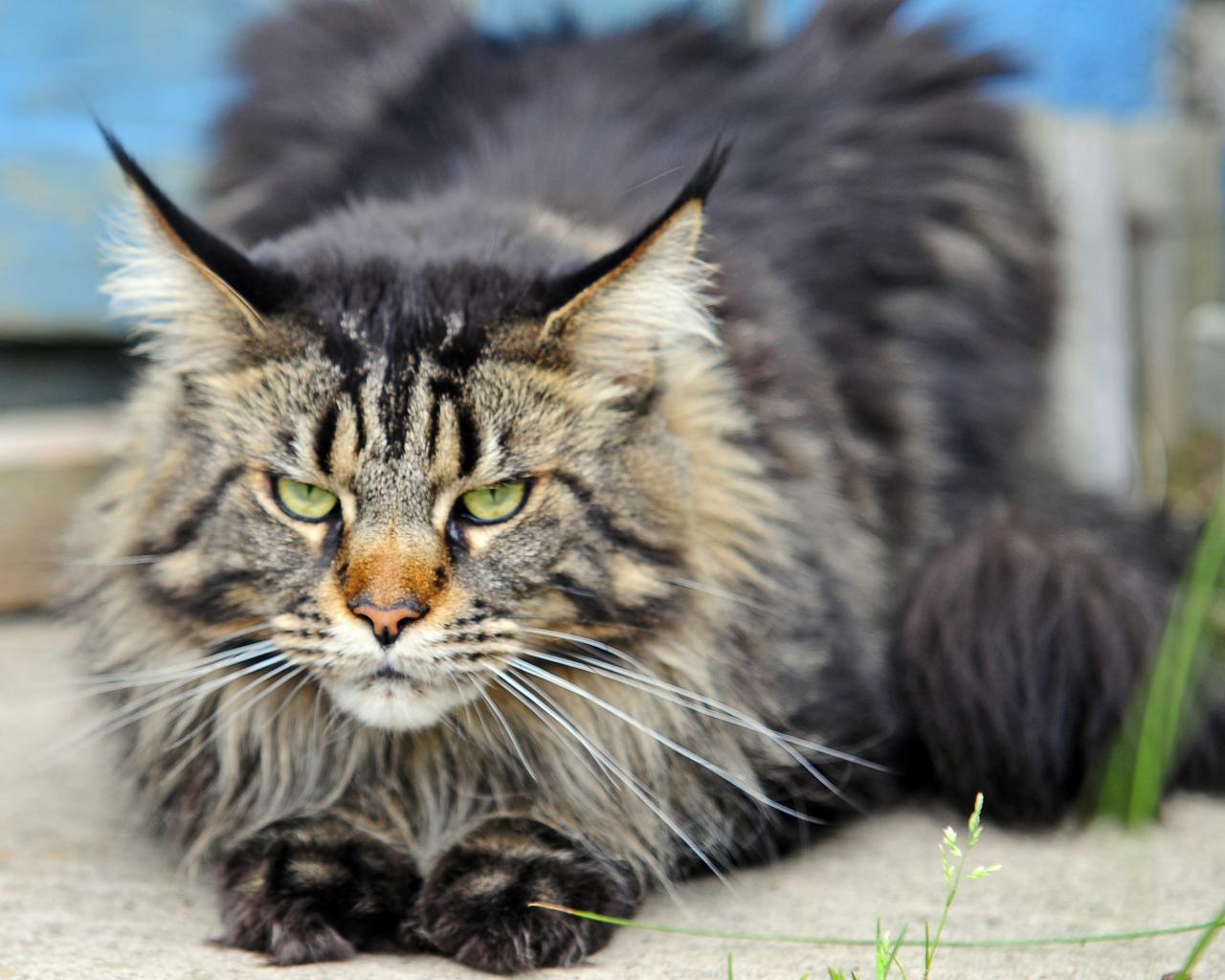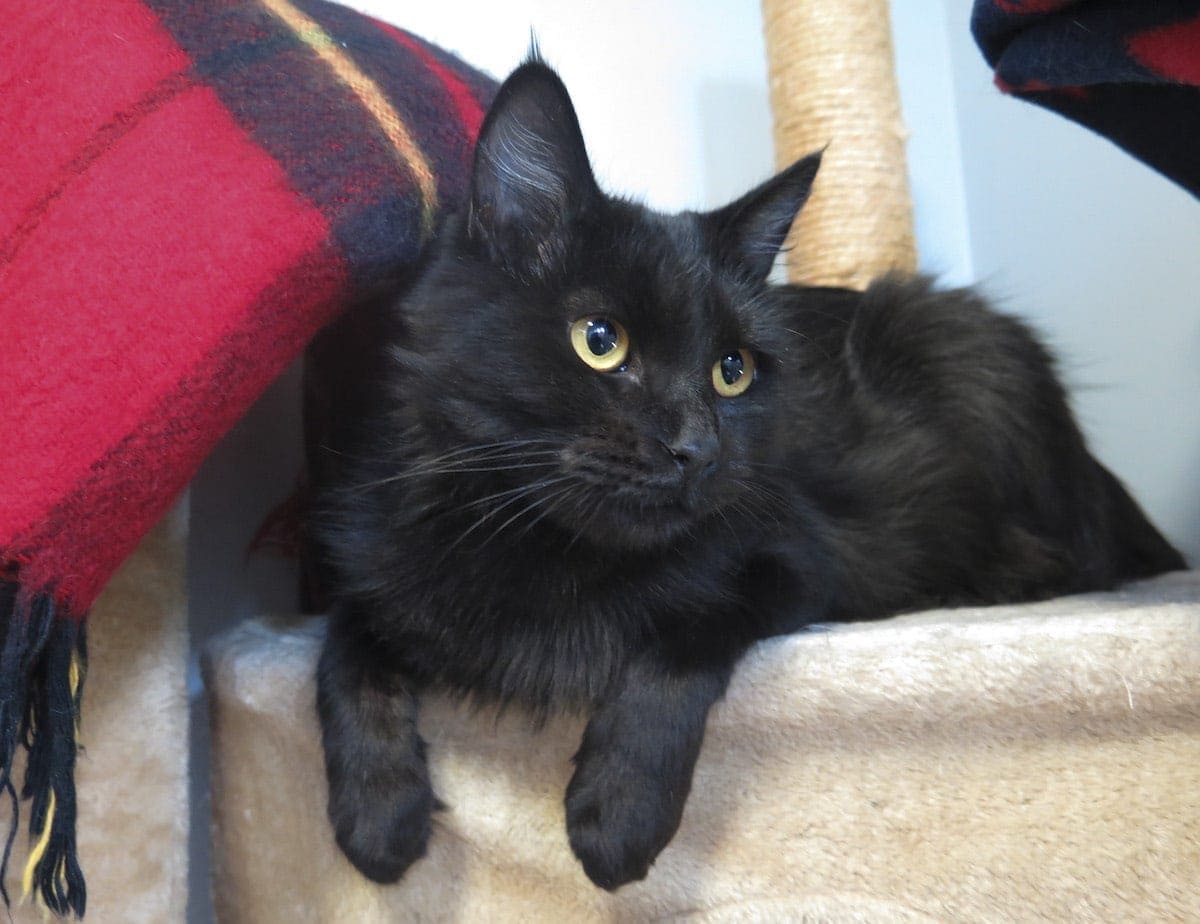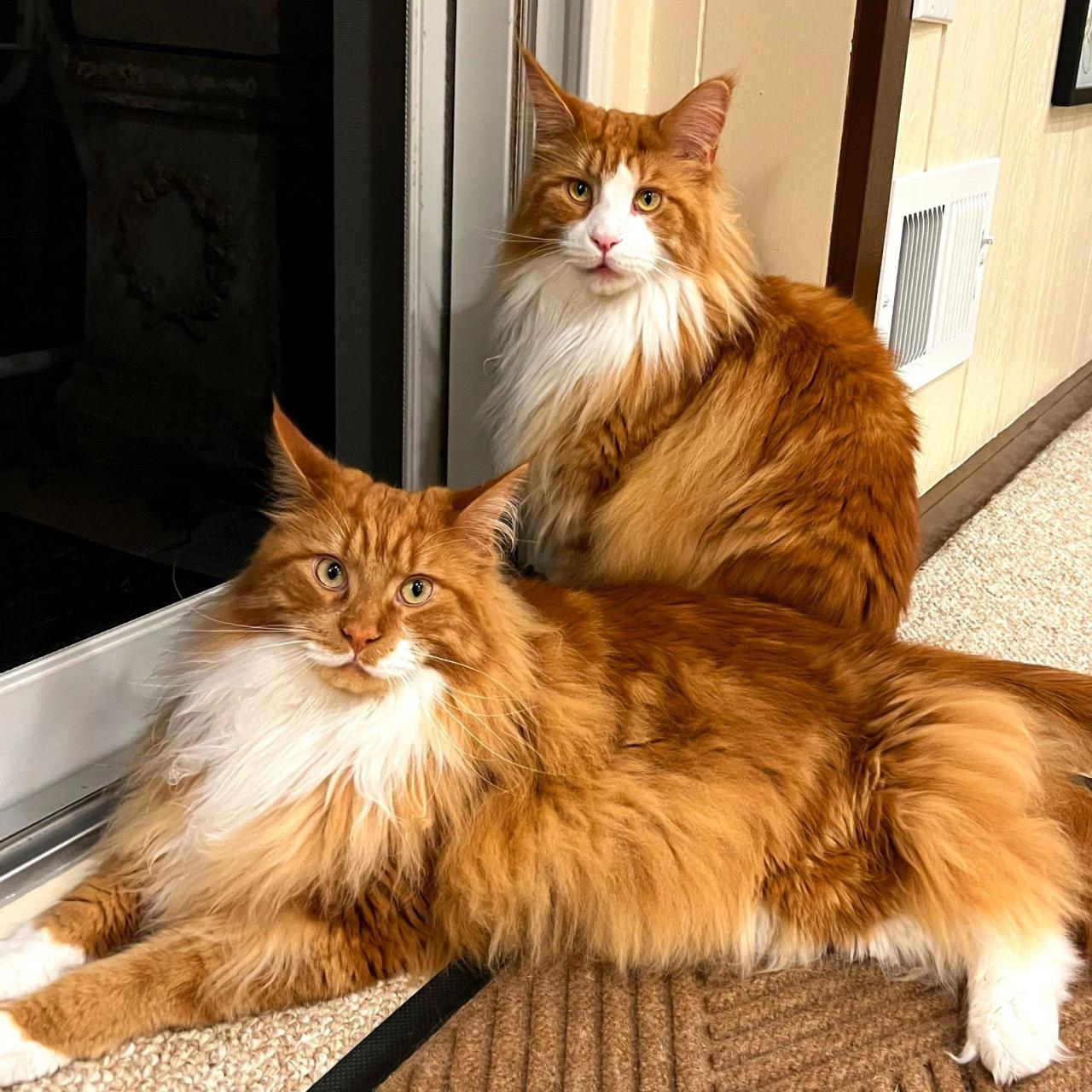Step into the captivating world of Maine Coon kittens Missouri, where these gentle giants await your embrace. With their captivating eyes, playful spirits, and unwavering loyalty, these feline companions will steal your heart from the moment you meet them. Explore their unique traits, discover reputable breeders and adoption centers, and embark on a journey filled with love, laughter, and the unwavering companionship of a Maine Coon kitten from the heart of Missouri.
As we delve into the world of Maine Coon kittens Missouri, you’ll uncover the secrets to their exceptional care, training, and socialization. From their nutritional needs to their grooming rituals, we’ll guide you every step of the way to ensure your furry friend thrives.
Prepare to be mesmerized by their playful antics, amazed by their intelligence, and enveloped in their unconditional love.
Maine Coon Kittens in Missouri
The Maine Coon is a large, sturdy breed of cat known for its distinctive physical characteristics and gentle personality. In Missouri, Maine Coon kittens are highly sought after by cat enthusiasts due to their unique traits and loving nature.
Maine Coon kittens are known for their large size, with males typically weighing between 13 and 18 pounds and females between 8 and 12 pounds. They have a muscular, rectangular body with a broad chest and a long, flowing tail.
Their fur is thick and dense, with a distinctive ruff around the neck and long, flowing whiskers. Maine Coon kittens come in a variety of colors and patterns, including brown tabby, black, white, and blue.
Reputable Breeders and Adoption Centers in Missouri
There are several reputable breeders and adoption centers in Missouri that specialize in Maine Coon kittens. Here are a few to consider:
- Missouri Maine Coon Breeders: This breeder is located in St. Louis, Missouri, and specializes in breeding high-quality Maine Coon kittens. They have a strict breeding program and all of their kittens are health tested and come with a health guarantee.
- Midwest Maine Coon Rescue: This rescue organization is located in Kansas City, Missouri, and specializes in rescuing and rehoming Maine Coon cats and kittens. They have a variety of kittens available for adoption, and all of their cats are spayed or neutered and up-to-date on their vaccinations.
Maine Coon Kitten Care

Maine Coon kittens require specific care to ensure their health and well-being. Understanding their nutritional needs, grooming requirements, and exercise routines is essential for their proper development.
Nutrition
Maine Coon kittens have a voracious appetite and require a high-quality diet to support their growth and energy levels. Choose kitten food specifically formulated for Maine Coons, which provides the necessary nutrients for their unique needs. Feed kittens small meals several times a day, gradually increasing the portion size as they grow.
Ensure constant access to fresh water.
Grooming
Maine Coons have long, thick fur that requires regular brushing to prevent matting and tangles. Brush their coat at least twice a week, paying special attention to the areas around the ears, belly, and tail. Bathe kittens as needed, using a gentle shampoo designed for cats.
Trim their nails regularly to prevent scratching and injury.
Exercise
Maine Coon kittens are active and playful, requiring plenty of opportunities to exercise and explore. Provide them with interactive toys, such as scratching posts, climbing trees, and tunnels. Supervise playtime to ensure their safety and prevent destructive behavior. Regular exercise helps kittens maintain a healthy weight and develop strong muscles.
Socialization and Training
Early socialization is crucial for Maine Coon kittens to become well-adjusted and friendly adults. Introduce them to various people, places, and experiences from a young age. Use positive reinforcement techniques, such as treats or praise, to encourage desired behaviors and discourage negative ones.
Patience and consistency are key to successful training.
Health Issues and Preventative Measures
Maine Coon kittens are generally healthy, but they may be prone to certain health issues, including hypertrophic cardiomyopathy (HCM), polycystic kidney disease (PKD), and hip dysplasia. Regular veterinary checkups, vaccinations, and deworming are essential for early detection and prevention of health problems.
Maine Coon Kitten Breeders in Missouri
Finding a reputable Maine Coon kitten breeder in Missouri is essential to ensure you get a healthy and well-socialized pet. Here’s a directory of some of the most respected breeders in the state:
When choosing a breeder, consider their experience, reputation, and the health of their cats. Visit their facilities, ask for references, and read online reviews to make an informed decision.
Top Maine Coon Kitten Breeders in Missouri
- Whiskers & Tails Maine Coons: Located in St. Louis, Whiskers & Tails is known for their exceptional breeding program and healthy kittens. Contact: (555) 123-4567, website: www.whiskersandtailsmainecoons.com
- Feline Fantasies Maine Coons: Based in Kansas City, Feline Fantasies specializes in breeding Maine Coons with outstanding temperaments and beautiful coats. Contact: (555) 789-1011, website: www.felinefantasiesmainecoons.com
- Majestic Maine Coons: Located in Springfield, Majestic Maine Coons is dedicated to preserving the breed’s unique characteristics. Contact: (555) 234-5678, website: www.majesticmainecoons.com
These breeders are committed to providing loving homes for their kittens and offer ongoing support to new owners. By choosing a reputable breeder, you can be confident that you’re getting a healthy and well-cared-for Maine Coon kitten.
Maine Coon Kitten Adoption in Missouri

Maine Coon kittens are adorable and gentle giants that make wonderful companions. If you’re looking to adopt a Maine Coon kitten in Missouri, there are several reputable adoption centers and rescue organizations that specialize in this breed.
Adoption Process
The adoption process typically involves submitting an application, providing references, and undergoing a home visit. Adoption fees vary depending on the organization, but typically range from $150 to $300.
Success Stories
Many families have found their furry best friends through adoption centers in Missouri. One such family adopted a Maine Coon kitten named Luna from a local rescue organization. Luna is now a playful and affectionate member of the family, bringing joy and laughter to her new home.
Adoption Centers and Rescue Organizations
Here are some adoption centers and rescue organizations in Missouri that specialize in Maine Coon kittens:
- Midwest Maine Coon Rescue: This organization is dedicated to rescuing and rehoming Maine Coon cats in Missouri and surrounding states.
- The Cat Network: This non-profit organization has a shelter in St. Louis that houses a variety of cats, including Maine Coon kittens.
- Stray Haven Animal Shelter: This shelter in St. Joseph has a dedicated area for cats, including Maine Coon kittens.
Maine Coon Kitten Health

Maine Coon kittens are generally healthy and robust, but like all breeds, they are prone to certain health issues. It’s essential to be aware of these potential health concerns and take appropriate preventive measures to ensure your kitten’s well-being.
Regular veterinary checkups and vaccinations are crucial for maintaining your kitten’s health. Your veterinarian can provide tailored advice on vaccination schedules and parasite control based on your kitten’s individual needs and lifestyle.
Common Health Issues in Maine Coon Kittens
- Hypertrophic cardiomyopathy (HCM):A condition where the heart muscle becomes abnormally thickened, leading to decreased heart function. HCM can be inherited and may not show symptoms until later in life.
- Polycystic kidney disease (PKD):A genetic disorder characterized by the formation of cysts in the kidneys, potentially leading to kidney failure. Regular screenings can help detect PKD early.
- Hip dysplasia:A condition where the hip joint doesn’t develop properly, causing pain, lameness, and arthritis. Responsible breeding practices can reduce the risk of hip dysplasia.
- Dental disease:Maine Coons are prone to dental issues due to their large mouths and dense fur, which can trap food and bacteria. Regular dental cleanings and home care are essential.
- Eye infections:Maine Coons’ large, expressive eyes can be susceptible to infections, such as conjunctivitis and corneal ulcers. Prompt veterinary attention is crucial to prevent complications.
Identifying and Treating Common Health Problems
Monitoring your kitten’s behavior and physical condition is vital for early detection of health problems. If you notice any unusual symptoms, such as lethargy, loss of appetite, vomiting, diarrhea, or changes in breathing, seek veterinary attention immediately.
Your veterinarian will perform a thorough examination and may recommend diagnostic tests, such as bloodwork, X-rays, or ultrasounds, to determine the underlying cause of your kitten’s symptoms. Based on the diagnosis, they will provide appropriate treatment options, including medication, surgery, or lifestyle modifications.
Maine Coon Kitten Training
Maine Coon kittens are highly intelligent and trainable cats. With patience and consistency, you can teach them a variety of basic commands and tricks. Here are some tips on how to train your Maine Coon kitten:
Start training your kitten as early as possible, ideally when they are between 8 and 12 weeks old. Kittens at this age are more receptive to learning new things and are less likely to develop bad habits.
Use positive reinforcement to train your kitten. This means rewarding them with treats, praise, or petting when they do something you want them to do. Never punish your kitten for making mistakes, as this will only make them fearful of you and less likely to cooperate.
Be patient and consistent with your training. It may take some time for your kitten to learn new commands, but with patience and repetition, they will eventually get the hang of it.
Basic Commands
Some basic commands that you can teach your Maine Coon kitten include:
- Sit
- Stay
- Come
- Down
- Off
- No
Tricks
Once your kitten has mastered the basic commands, you can start teaching them some tricks. Some popular tricks for Maine Coon kittens include:
- Shake hands
- Roll over
- Play dead
- Fetch
- Jump through a hoop
Preventing and Correcting Behavioral Problems
Maine Coon kittens are generally well-behaved cats, but they can sometimes develop behavioral problems, such as:
- Aggression
- Destructive behavior
- Litter box problems
- Separation anxiety
If your kitten is exhibiting any of these behaviors, it is important to take steps to correct them as soon as possible. The best way to prevent and correct behavioral problems is to provide your kitten with plenty of love, attention, and socialization.
You should also make sure that your kitten has a healthy diet and plenty of exercise.
Maine Coon Kitten Socialization: Maine Coon Kittens Missouri

Socialization is an essential aspect of Maine Coon kitten development, helping them grow into well-adjusted, confident cats. By introducing them to various experiences early on, you can build a solid foundation for their future well-being.
Socialization should begin as early as possible, ideally between 2 and 7 weeks of age. This is when kittens are most receptive to new experiences and learning. Proper socialization involves exposing them to a variety of people, animals, and environments.
Interacting with People
- Handle kittens gently and regularly, allowing them to become comfortable being touched and held.
- Introduce them to different people, including children and adults, so they learn to trust and interact with humans.
- Use positive reinforcement, such as treats or praise, when kittens behave appropriately during interactions.
Exposing to Other Animals
- Supervise interactions with other friendly pets, such as dogs or cats, to help kittens learn appropriate social behaviors.
- If possible, allow kittens to observe interactions between other animals to learn from their cues.
- Ensure all animals are up-to-date on vaccinations to prevent the spread of diseases.
Introducing to New Environments, Maine coon kittens missouri
- Take kittens on short trips in a carrier to expose them to different sights, sounds, and smells.
- Create a safe and stimulating environment at home with toys, climbing structures, and hiding places.
- Gradually introduce them to new rooms and areas within the house to expand their comfort zone.
Socialization benefits Maine Coon kittens in numerous ways. It helps them:
- Develop confidence and trust in people and animals
- Learn appropriate social behaviors and reduce aggression
- Become more adaptable and less fearful in new situations
- Form strong bonds with their human companions
Maine Coon Kitten Nutrition
Maine Coon kittens have specific nutritional needs that vary depending on their age and developmental stage. Providing a balanced and healthy diet is crucial for their overall well-being and growth.
Nutritional Needs at Different Stages
- 0-6 weeks:Kittens rely solely on their mother’s milk, which provides all the essential nutrients they need.
- 6-12 weeks:Kittens begin to transition to solid food. Start introducing kitten-specific wet or dry food, gradually increasing the amount and reducing the frequency of milk feedings.
- 12-24 weeks:Kittens should be fully weaned and eating a balanced kitten food diet. They may still require occasional milk supplements for additional calories and hydration.
- 24 weeks and older:Kittens can gradually transition to an adult cat food diet, ensuring it meets their specific nutritional requirements.
Sample Meal Plan and Feeding Schedule
A sample meal plan and feeding schedule for Maine Coon kittens:
- 6-12 weeks:Feed 4-6 small meals per day, consisting of a combination of wet and dry kitten food.
- 12-24 weeks:Gradually reduce the number of meals to 3-4 per day, increasing the portion size.
- 24 weeks and older:Feed 2-3 meals per day, with the amount adjusted based on the kitten’s weight and activity level.
Importance of a Balanced Diet
A balanced diet provides Maine Coon kittens with the essential nutrients they need for optimal growth and development, including:
- Protein:For muscle growth and development.
- Fat:For energy and insulation.
- Carbohydrates:For energy and fiber.
- Vitamins and minerals:For overall health and well-being.
Feeding a Maine Coon kitten a balanced diet helps prevent health problems, supports their immune system, and promotes a healthy weight.
Maine Coon Kitten Grooming
Maine Coon kittens are known for their luxurious, flowing coats. Proper grooming is essential to keep their fur healthy and free of mats and tangles. Here’s a comprehensive guide to grooming your Maine Coon kitten:
Brushing
Brush your kitten’s coat regularly, at least twice a week. Use a slicker brush to remove loose hair and prevent mats. Start by brushing in the direction of hair growth, then gently brush against the grain to remove any tangles.
Be patient and gentle, especially around the belly and legs where the fur is more delicate.
Bathing
Maine Coon kittens do not need frequent baths. Bathing them once a month or every two months is sufficient. Use a gentle shampoo specifically designed for cats and avoid getting water in their eyes or ears. Rinse thoroughly and towel dry your kitten gently.
Nail Trimming
Trim your kitten’s nails every few weeks to prevent them from becoming too long and sharp. Use sharp nail clippers and trim only the white tips of the nails. Avoid cutting into the pink part of the nail, as this can be painful for your kitten.
Regular grooming is essential for the health and well-being of your Maine Coon kitten. It helps keep their fur clean and free of mats, reduces shedding, and strengthens the bond between you and your feline friend.
Maine Coon Kitten Exercise
Maine Coon kittens are energetic and playful, requiring regular exercise to maintain their physical and mental well-being. Providing adequate exercise helps prevent boredom, destructive behavior, and obesity.
Appropriate Exercise Activities
Maine Coon kittens can engage in various exercise activities, including:
- Interactive play:Engage kittens in interactive play sessions using toys such as wands, balls, and laser pointers.
- Scratching posts:Provide sturdy scratching posts to satisfy their natural scratching instinct and protect furniture.
- Cat trees:Offer cat trees with multiple levels and hiding spots to encourage climbing and exploration.
- Playdates:Supervise playdates with other kittens or friendly adult cats to promote socialization and exercise.
Importance of Exercise
Adequate exercise is crucial for Maine Coon kittens for several reasons:
- Physical health:Exercise helps maintain a healthy weight, strengthens muscles and bones, and improves cardiovascular health.
- Mental stimulation:Play and exploration provide mental stimulation, preventing boredom and reducing stress.
- Behavioral problems:Regular exercise can prevent destructive behaviors such as scratching furniture or chewing on inappropriate objects.
- Bonding:Interactive play sessions strengthen the bond between you and your kitten.
Last Point

As we bid farewell to the enchanting realm of Maine Coon kittens Missouri, let the memories of their gentle paws, playful purrs, and unwavering companionship linger in your heart. Remember, these extraordinary felines are not just pets; they are family, forever entwined in the tapestry of your life.
Embrace the journey of raising a Maine Coon kitten from Missouri, and witness the unbreakable bond that will blossom between you.
